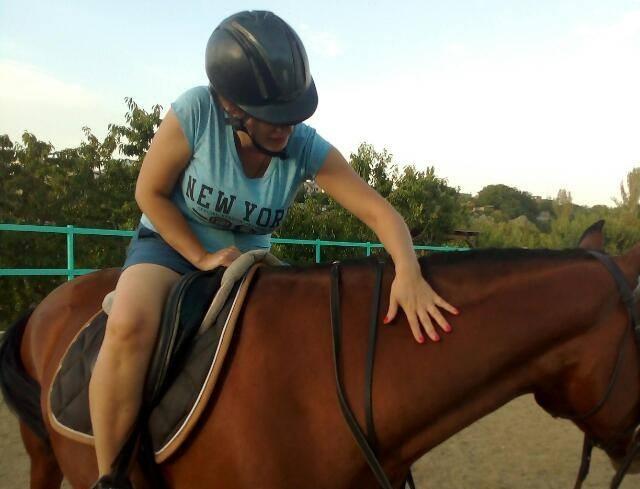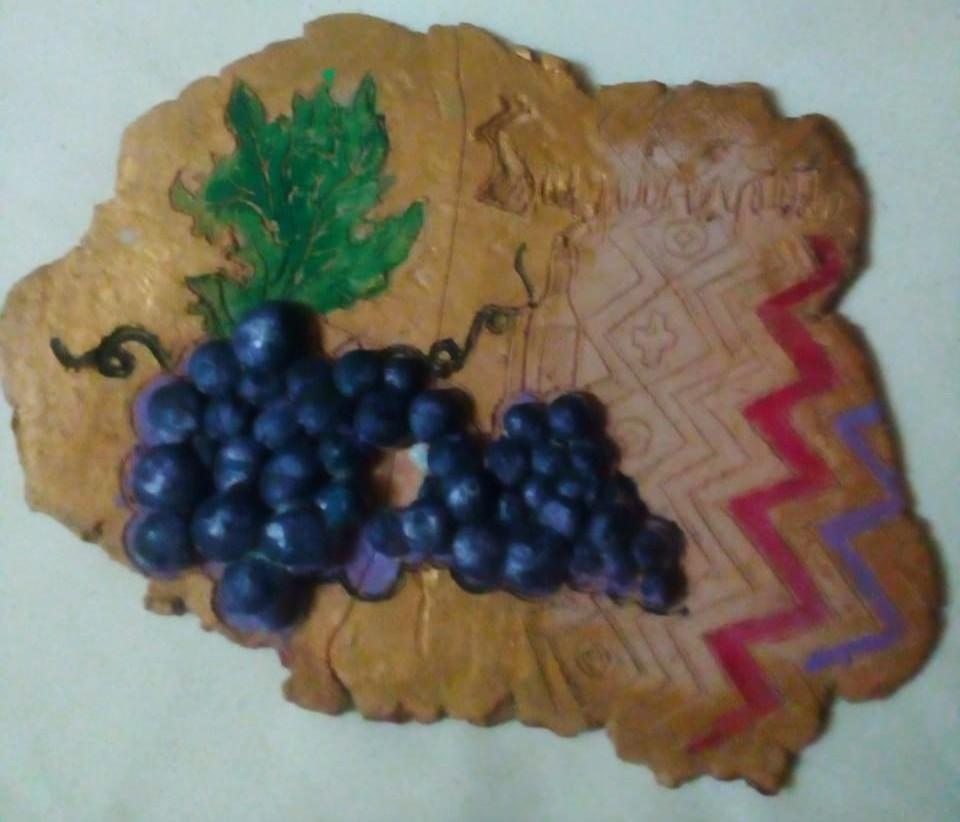
Anastasia's Story: "12 Years of Struggle or How to Get an Education in an Armenian Prison"
By Rafik Engibarian
- When I was sentenced to 12 years imprisonment and ended up in Armenia's Abovyan Penitentiary, I didn’t think that I could ever study or even have a life. It seemed to me like everything just stopped. What can happen to you in 12 years? You never know…
Anastasia was in this state of mind at the initial stage of her imprisonment.
- I spent 2 years in isolation. I couldn’t even use the library. I was getting books only from my relatives when they came to visit me. I read literature about art and biographies of artists. After a while, I realized that I had to do something, and from the very beginning I faced obstacles...
Anastasia decided to study pottery, but the necessary materials were forbidden in the prison. Watercolors and gouaches were also banned, so her request was rejected.
- The administration of the penitentiary explained that no prisoner before me, especially someone isolated, wanted to draw or work with such materials. I was only allowed to work with color pencils for two hours a day. They were giving me only pencils. I wasn’t allowed to keep a sharpener. When the pencils broke, I waited until the next day to get them sharpened. I was only keeping the papers. After two hours they were taking all the other items.
After spending 2 years in an isolation ward, Anastasia was transferred to the general population. Some restrictions were lifted and she was allowed to attend the prison school. In three years, Anastasia successfully passed several courses.
- Inside the prison I attended 6-month courses. Now, I have certificates in economics, telecommunication, accounting and office work․
After completing these courses Anastasia decided to get a university education.
- I got sentenced to 8-9 years. I went to the prison administration and asked them to help me get a higher education. I was rejected. They told me I couldn’t apply for a higher education due to a particularly grave crime.
Anastasia asked the prison administration for internal regulations. She wanted to see personally why she couldn’t exercise her right to an education. But they refused to give her a guide or a code in the prison. They told her that she could only receive information from a lawyer.
- After my departure, many processes have become quite transparent. Now, in prison you can freely apply for a lawyer and get answers to your questions. When I was in prison, you were supposed to ask for an appointment date and time. And you couldn’t be sure that the lawyer would show up.
Anastasia succeeded to meet a lawyer. One again she was told that in cases of grave or especially grave crimes convicts couldn’t apply for education.
- I was also told that nobody would take me from the prison to the university for exams and quizzes. I was twice rejected by the penitentiary administration. But even after that I applied in the form of a request and said that I wouldn’t stop fighting for my right to education. I appealed to the Ministry of Justice and the Human Rights Defender. They expressed a readiness to help me.
Eight universities rejcted me. The reasons were different. Apart from legal restrictions, universities had no working experience with convicts, special educational programs and trained lecturers.
Anastasia twice applied to Mashtots University but was rejected. After the third application, the Rector of Mashtots University agreed to discuss the issue.
- The Rector of Mashtots University said that I had to take the admissions exam. If I couldn't show up myself then I'd have to represented by an authorized person. I suggested contact via the phone, but I couldn’t use a cellphone in the prison. I had to use a payphone and pay 1,000 AMD for 10 minutes.
After the negotiations Anastasia finally passed all the exams and became a student at Mashtots University.
- The administration was shocked... The penitentiary chief called me and said that I was crazy. I replied that I knew /laughs/. I asked the prison authorities only for one thing: do not interfere, if they can’t help.
After that Anastasia began to study at the university, but unexpected problems surfaced with her graduation work. The penitentiary administration was constantly changing. The new leadership didn't adhere to the previous agreements. They refused to take Anastasia to the university for the final exam. In turn, professors refused to come to prison.
Anastasia again petitioned the Human Rights Defender and the Red Cross office. Two ambassadors expressed a willingness to help. The Human Rights Defender personally visited the prison several times to solve the issue.
As a result Anastasia graduated from Mashtots University with a Red Diploma a year later.
- I called my graduate work "All the same, art doesn’t tolerate restrictions". I wanted to show that if a person wants to achieve his goal, nothing can stop him. I was working in the prison and saved every penny in order to pay my tuition fee.
Even now, when Anastasia constantly faces problems while looking for a job, she doesn’t regret getting an education. As she says, she will never regret that, because it helps her a lot in her daily life.
- In the future, I intend to work in my professional field because I love it. I don’t want to be a dishwasher or a cleaner just because nobody offers me any other job due to my conviction.
Anastasia dreams about getting a Master's degree at the Academy of Fine Arts, but she can't afford it. She doesn’t have a permanent job, and besides, she's raising her son.
 Videos
Videos Photos
Photos

Write a comment